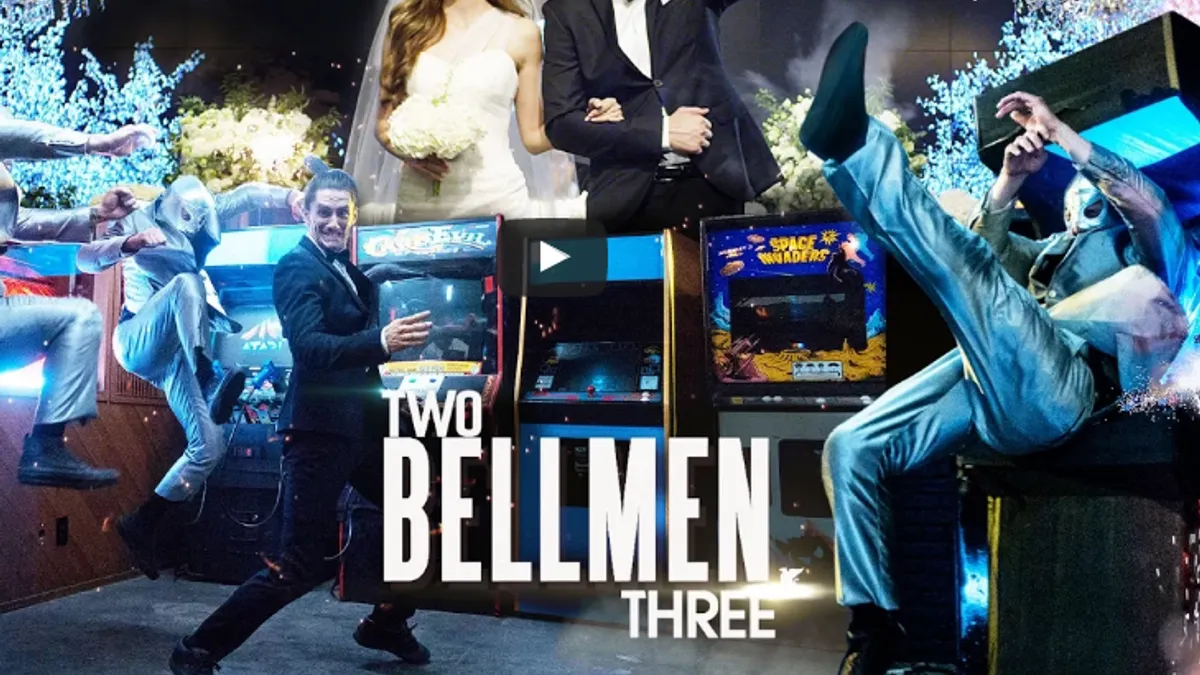Brand storytelling is no longer just a content marketing buzzword, especially as consumers demand more compelling narratives, authenticity and entertainment value in their marketing and block out old, interruptive forms of messaging. As marketers seek to adjust strategy, many are taking the logical next step of tapping professionals and artists who have excelled in the space for years in Hollywood.
Unilever's Dove brand partnered with TV producer, screenwriter and author Shonda Rhimes for its Real Beauty Productions, a collaborative content studio to give voice to women's personal stories with film. Marriott has helped rewrite the script on Hollywood-style branded content with efforts like its ongoing "Two Bellmen" series, the most recent entry of which ran nearly 40 minutes in length. Even tech platforms and developers have become more entertainment-minded, exemplified in Google's recent hiring of former Pixar storyboard artist Emma Coats, of "Brave" fame, to lend its Google Assistant a more amiable personality.
"In a multi-screen world where technology allows consumers to choose when, where and how to interact with brands, it's important that brands stop interrupting what consumers are interested in, and become what they are interested in," David Beebe, Emmy-Winning entertainment executive, branded content producer and former VP of Global Creative and Content Marketing at Marriott International, told Marketing Dive.
"No one can argue with the numbers and consumer behavior that shows the days of interruptive marketing are over," he said. "In order to engage with consumers today, brand content must first provide value — either by informing, entertaining or solving problems."
What marketers can learn from Marriott's content factory
Beebe started the Marriott Content Studio three years ago as a hub for developing, producing and distributing narrative-driven content for Marriott's 30-brand portfolio, whether it be short films, TV shows, webisode series, documentaries or influencer-supported offerings. And though Marriott Content Studio operates in-house, its production process is anything but.
"There we no stages, crews or equipment," Beebe said. "I hired former television development executives and journalists to develop the ideas in-house and then, based on the type of creative it was, we went to the Hollywood creative community to find the right partners to further develop the creative and actually execute it."
The result of this approach was the brand — a Marriott hotel — was able to become a character within the story in a more authentic way than a mere integration.
"For example, in the case of our 'Two Bellmen' short film franchise, we developed the core idea, where the story was driven by music and movement, in addition to the script," Beebe said. "It's high touch creative where the brand is natural to the story and the viewer experiences the features and benefits each hotel visually as part of the story vs interrupting a story with an integration."
For marketers looking to replicate that success, Beebe pointed to three factors that were essential to setting Marriott Content Studio on the right path:
- Beebe never took pitches from outside talent or producers to avoid stories that were already developed and weren't authentic to the Marriott brand.
- By developing concepts in-house, Marriott retained ownership of the intellectual property, making the branded content a "long tail play," as scripted short films might eventually be licensed by other distributors based on the strength of their stories. Because of this, the marketing content went from a cost center to a revenue center. As Beebe asked, "Why finance projects and not own them?”
- Finally, Beebe built long-term relationships with actors, writers, directors, producers and social media influencers and signed development deals with them to become exclusive to Marriott's portfolio over a period of time similar to old-world studio deals.
The dangers of Hollywood hype
A recent survey from the Interactive Advertising Bureau (IAB) found advertisers' investment in original digital video programming has nearly doubled over the past two years, and that 80% of executives said they plan to spend more on original digital video in 2017 with emerging formats like VR and 360-degree video as an impetus.
The increased focus and emphasis on creative stories in marketing hasn't been lost on Marlo Custodio, CEO and co-founder, NEEBA, a digital storytelling agency that combines agency work, film production and emerging technologies. For Custodio, "Hollywood-style storytelling” is creating brand narratives that are engaging and have more of a traditional three-act structure — common to film but less so in marketing.
"These types of narratives are sensational and sentimental, allowing viewers to connect through entertaining and engaging content," he said. "Reputation and social currency matters to brands and the relationship they have with their consumers. Consumers becoming advocates is the goal and powerful stories convey the brand's vision and message.
"With so many voices in the hallway of social media platforms, it's important to stand out amongst the crowd," he added.
Introducing professional storytellers from outside marketing to the process isn't without its hurdles for both creative talent and marketers. The former has to understand the brand marketing world and how that ecosystem works, Beebe said, while the latter can't get caught up in Hollywood excitement only to lose sight of the end business goals.
"The biggest challenge for both storytellers and marketers is that, in many cases, neither party knows the purpose of the content," Beebe said. "They get excited to create a studio or go off and make a film, but they really don't know why.
Is it about brand awareness? Or to change brand perception? Or is it to drive revenue? What's the distribution strategy?" he added. "I've seen a lot of great content be produced and then no one knows where to put it, or if they do, they have no media or marketing strategy behind it."
Technology as a new storyteller
One area for marketers to watch as content marketing evolves is its growing intersection with emerging technologies, especially in the mobile space where smartphone users are consuming content — and especially video — more voraciously.
"Professional storytellers are going to be increasingly important in a mobile-first, social and immersive video world," said Custodio. "Time spent on video will continue to grow as emerging opportunities like 360-degree and VR [virtual reality] take hold. As this happens, the role of storytellers will become more paramount as the actual [stories] become more powerful and engaging."
Virtual reality has the potential to create what he described as "more empathetic engagement between the storytellers and the consumers than we’ve ever seen before." He sees VR and augmented reality (AR) technology as becoming a "must-have" type of creative for marketers.
Though technology might play a more critical role in delivering the right content to the right audience and can help facilitate the move from mass media to more personalized marketing, brands must maintain the human connection.
"[I]t doesn't matter what kind of business you're in, we're all in the people business, or the human-to-human business," Beebe said. "At the end of the day, a human with the ability to make choices and solve problems will always win."






















